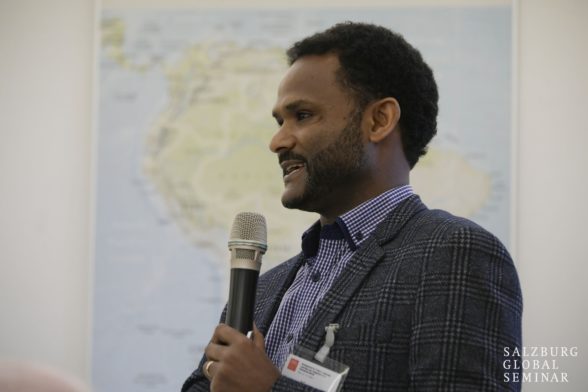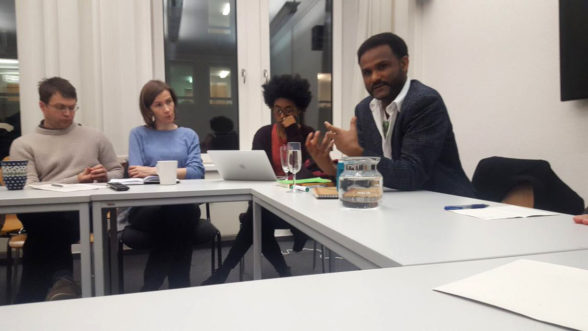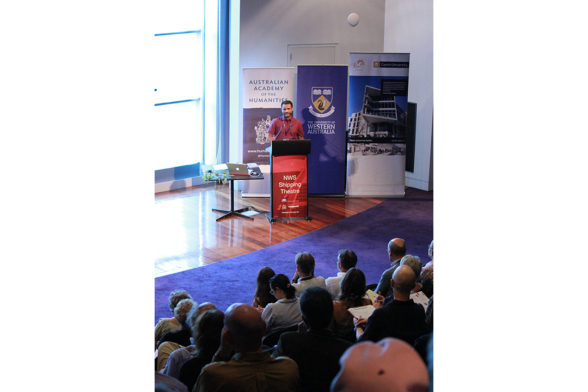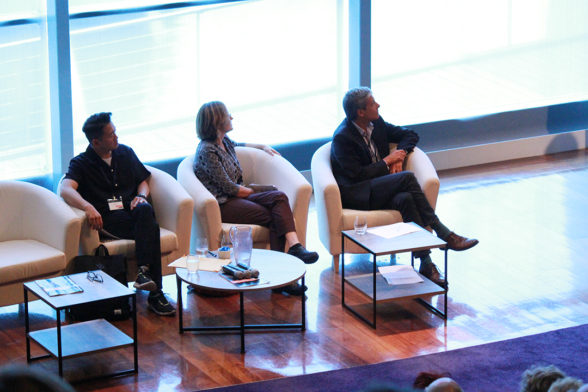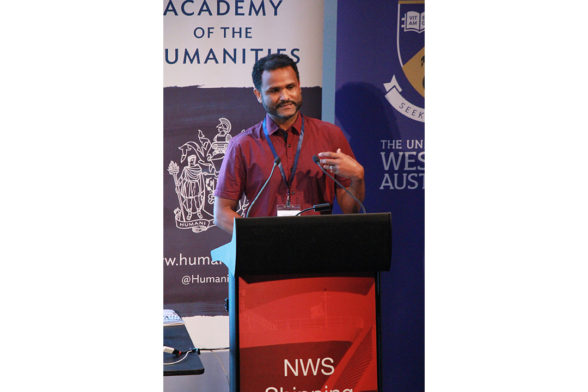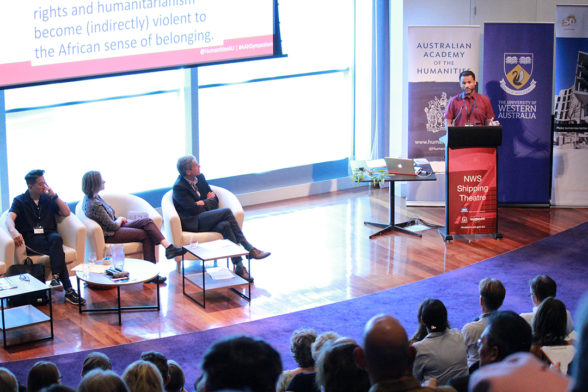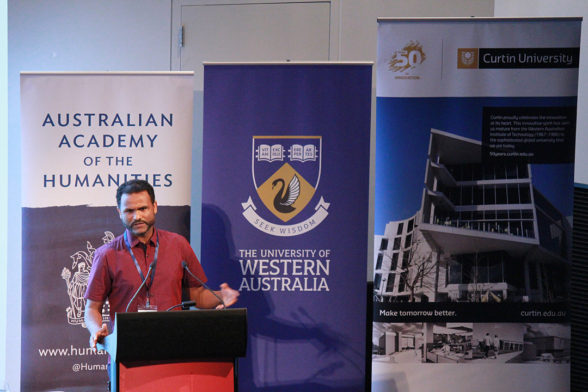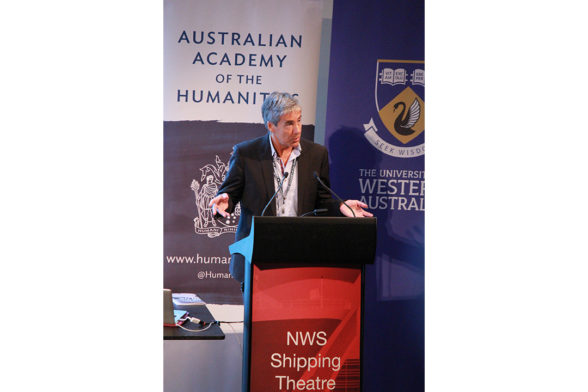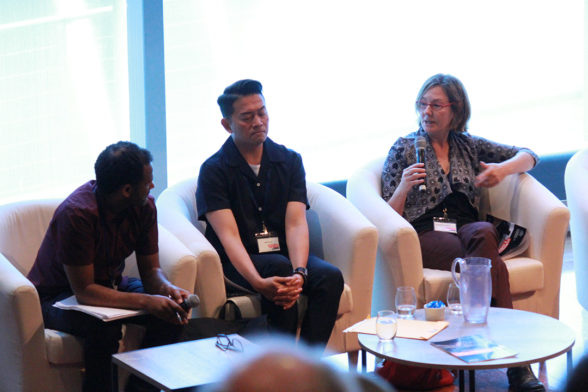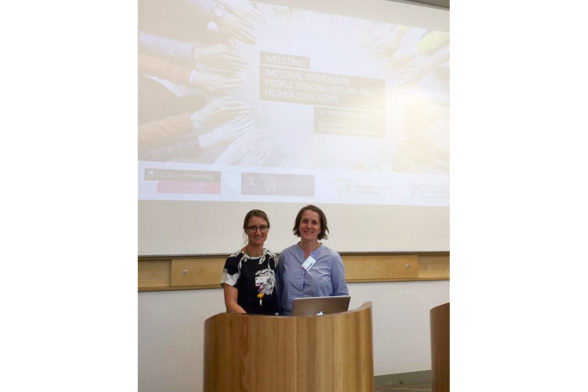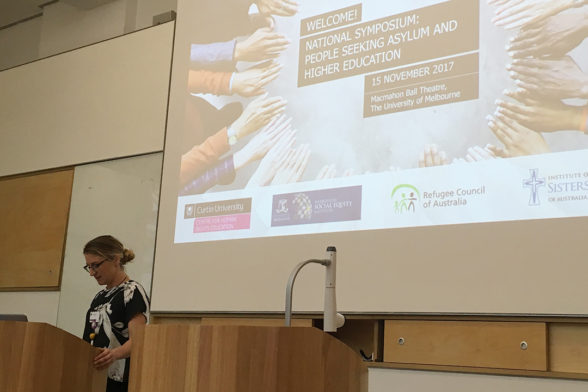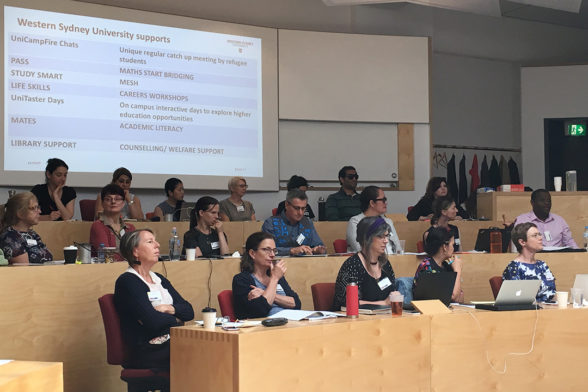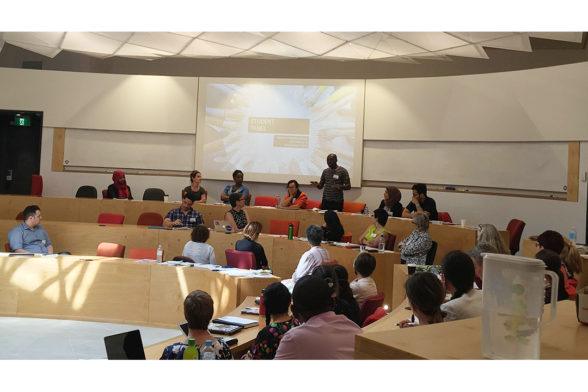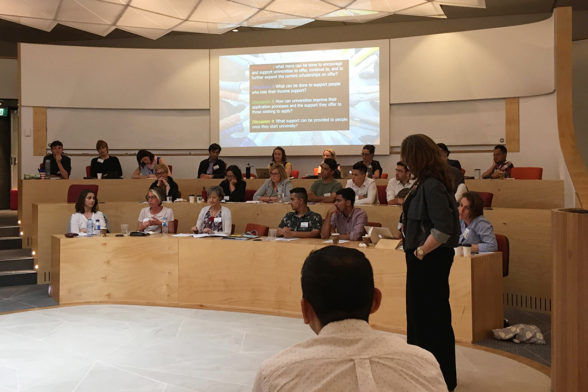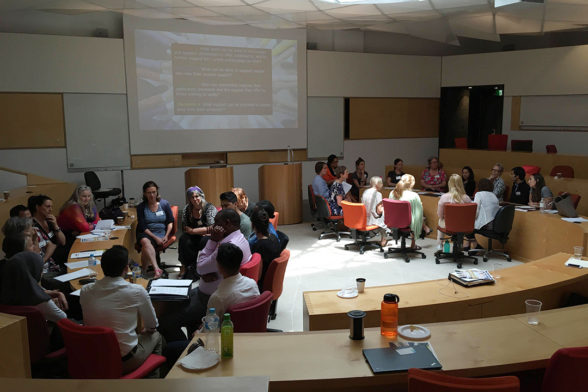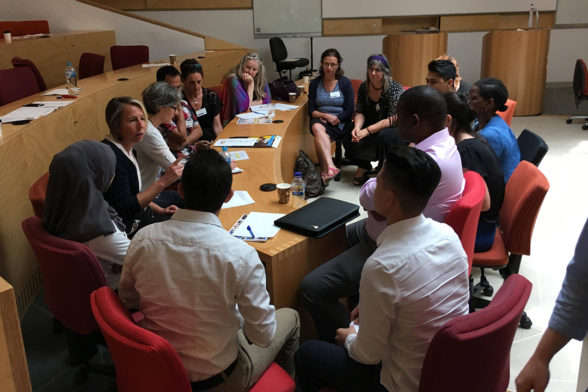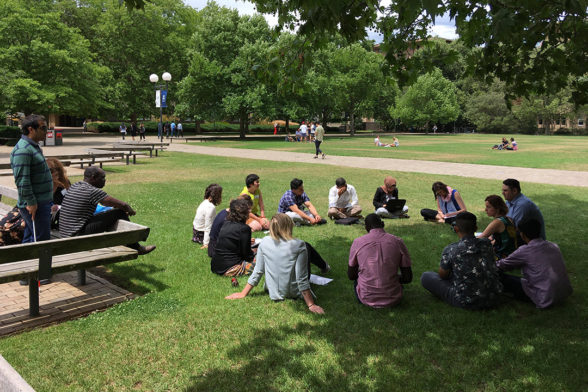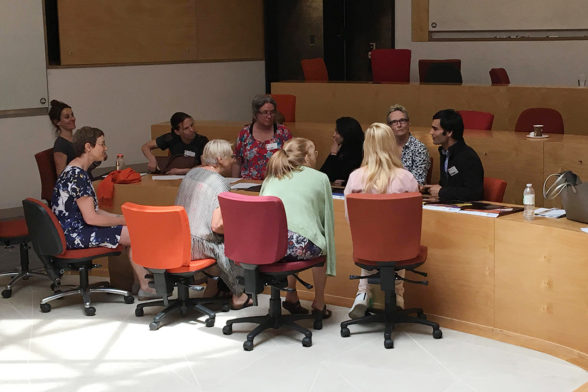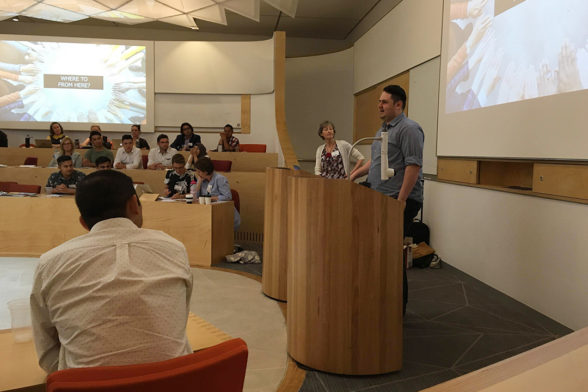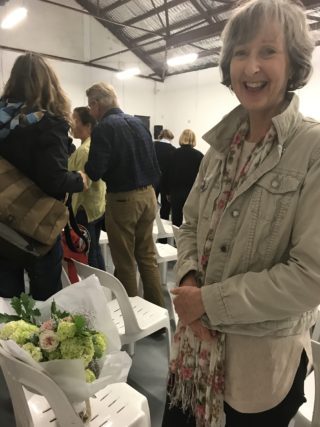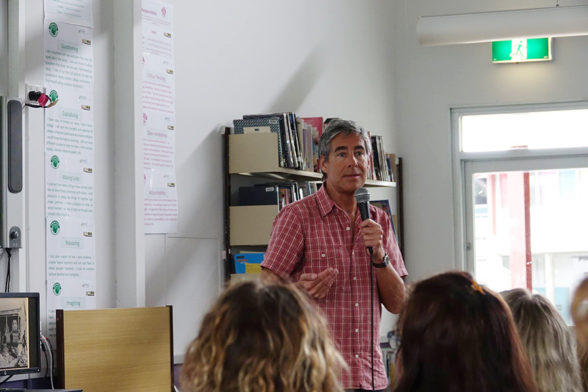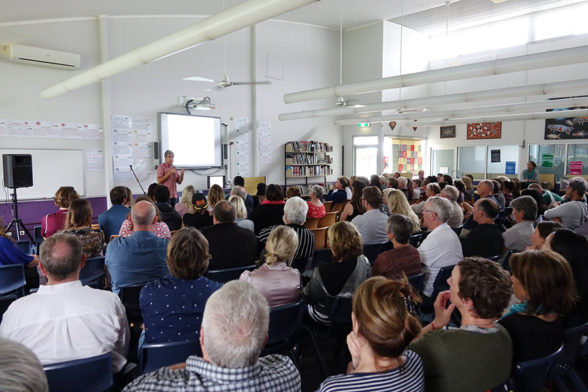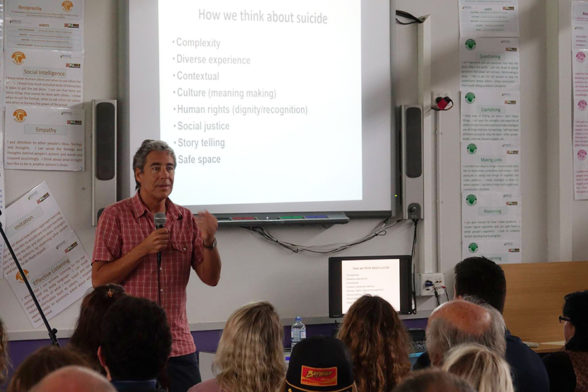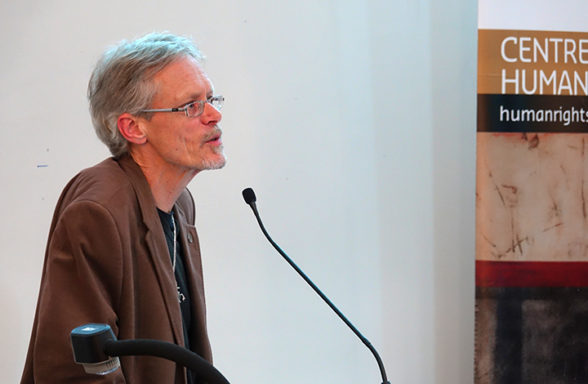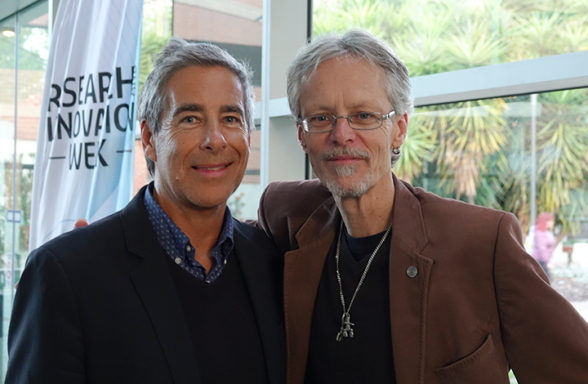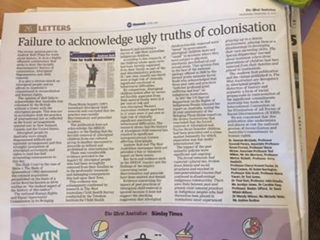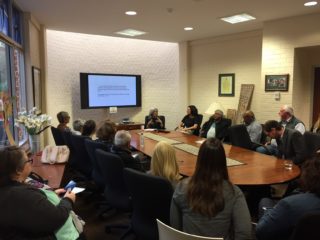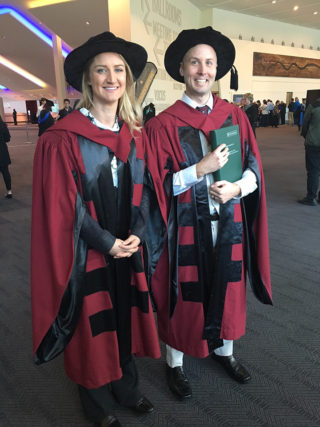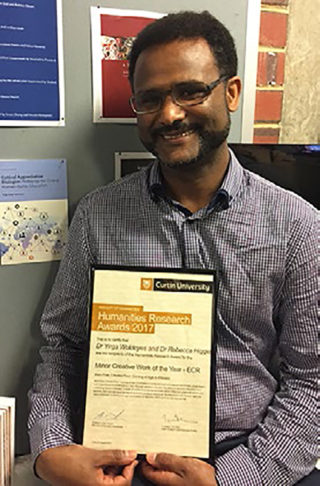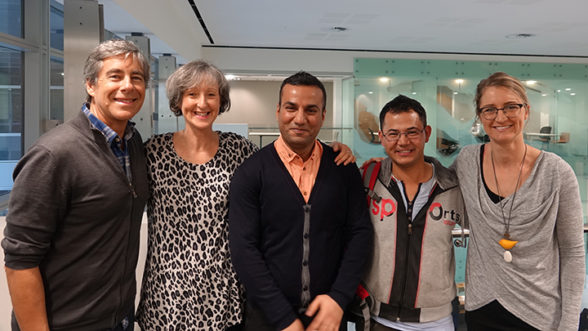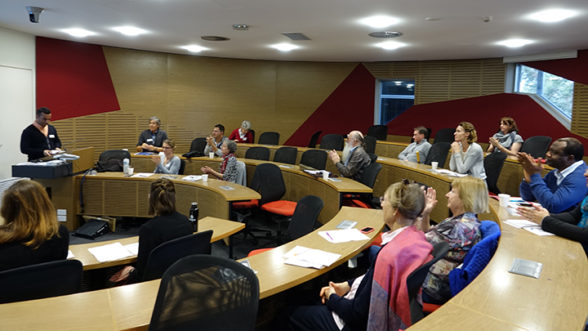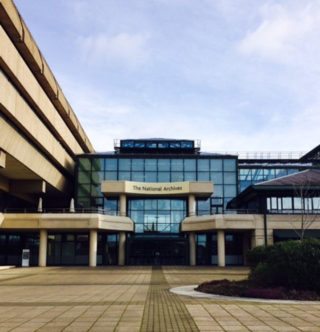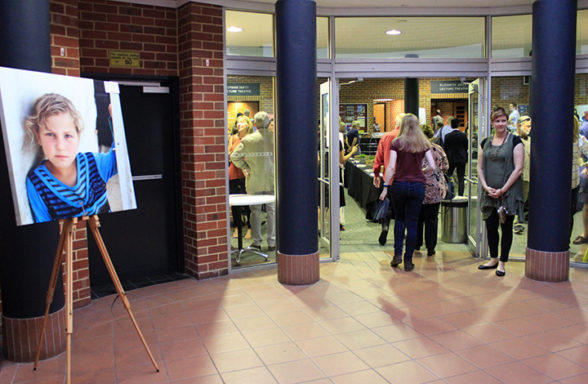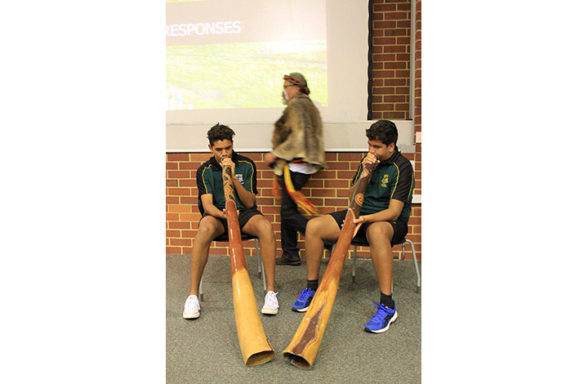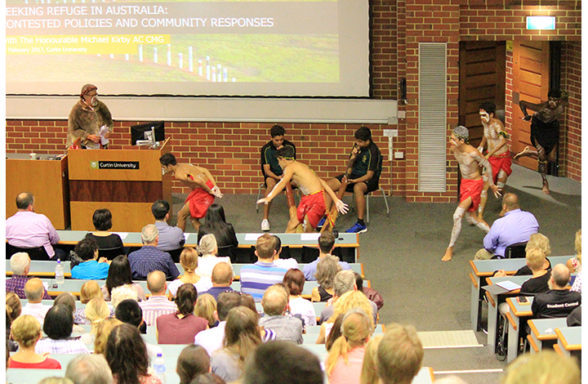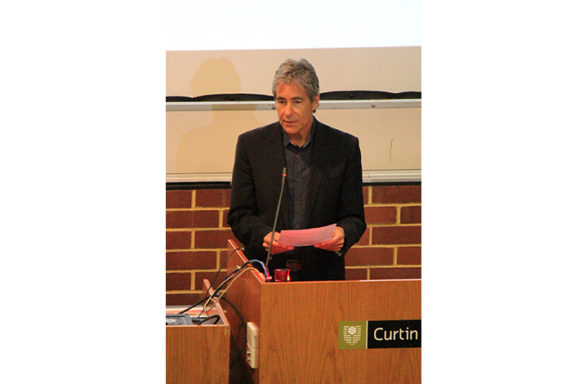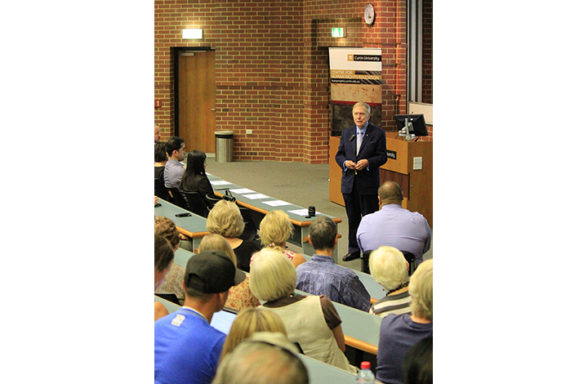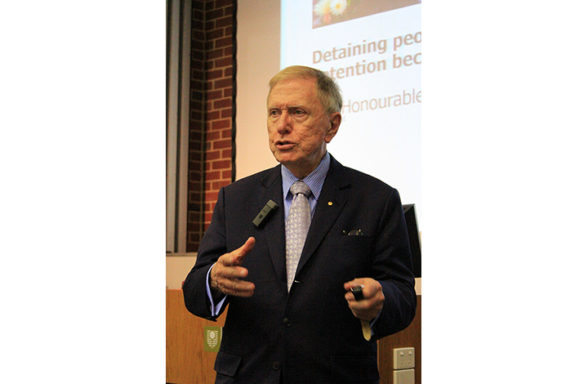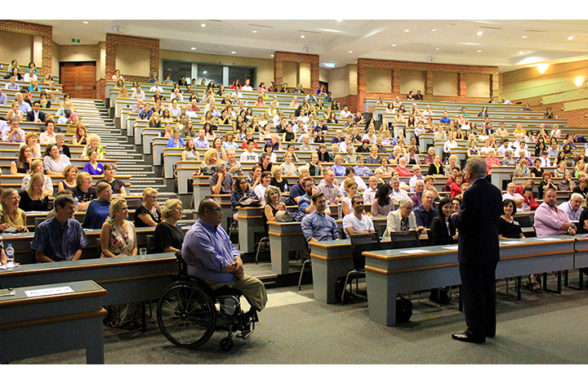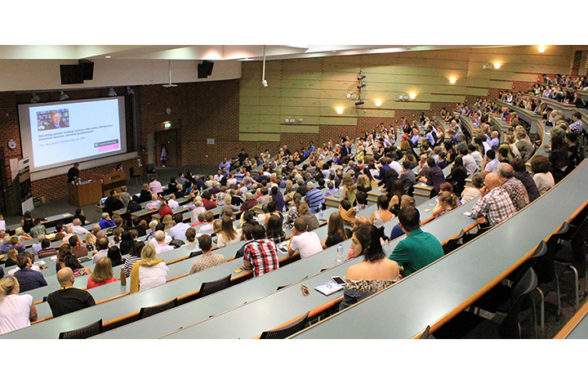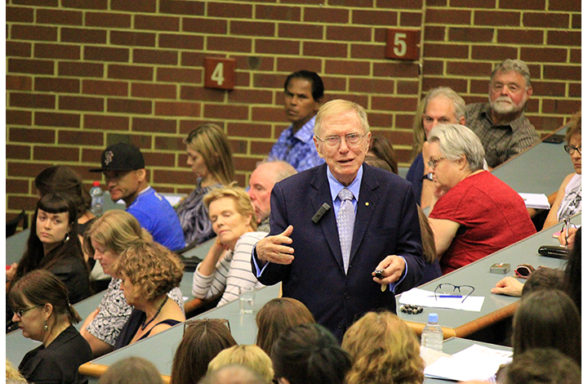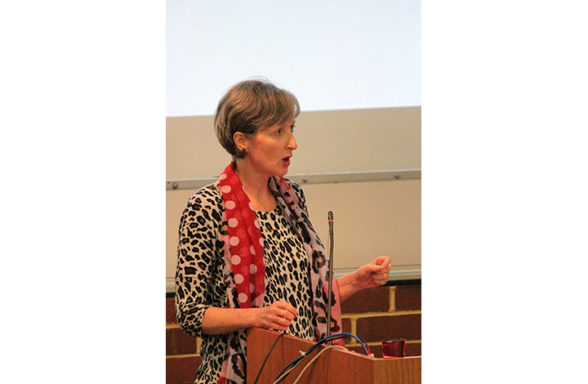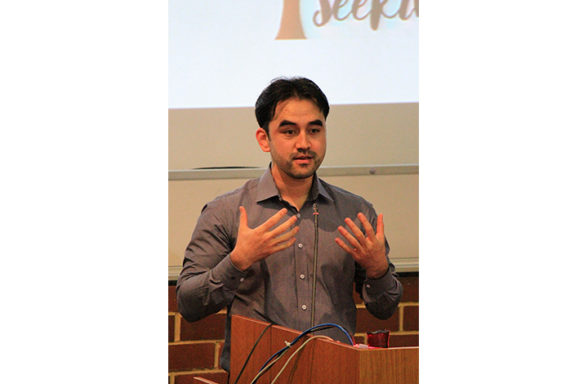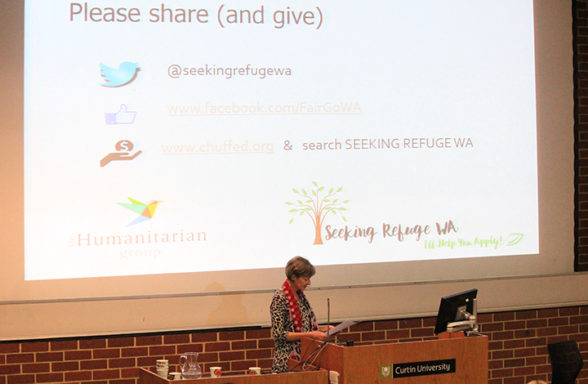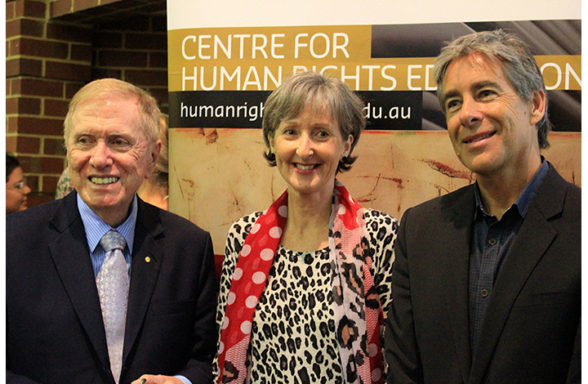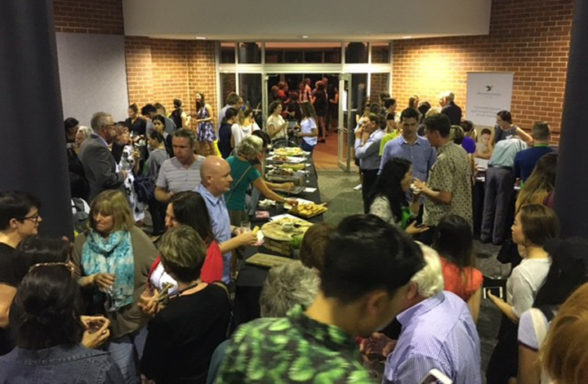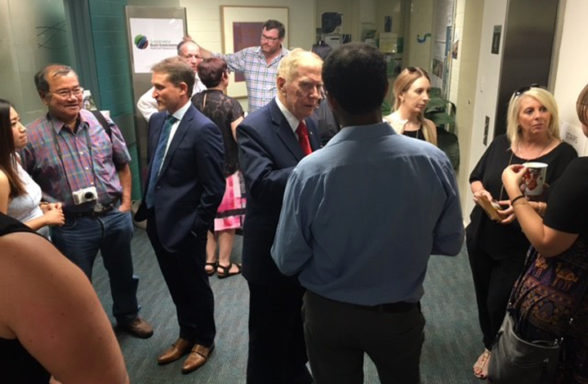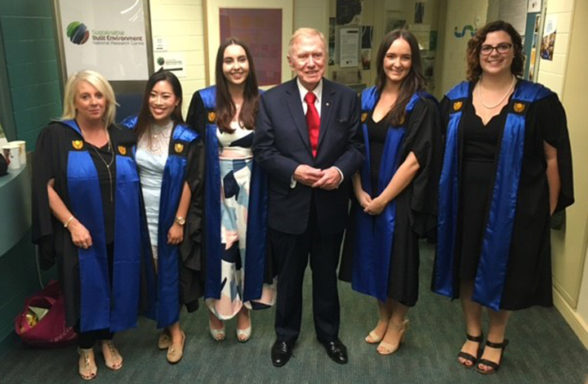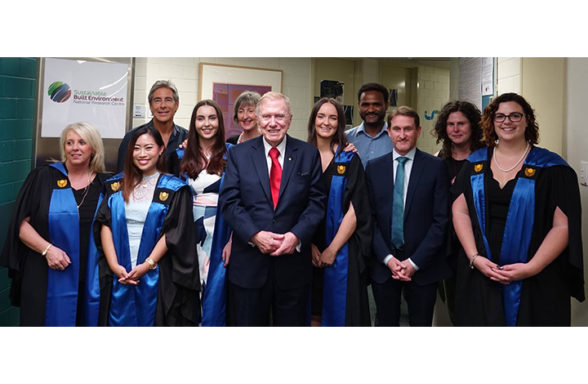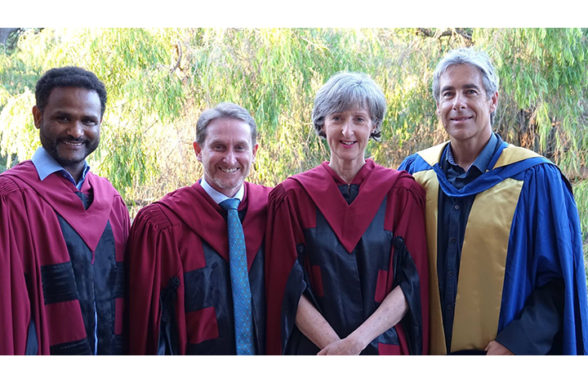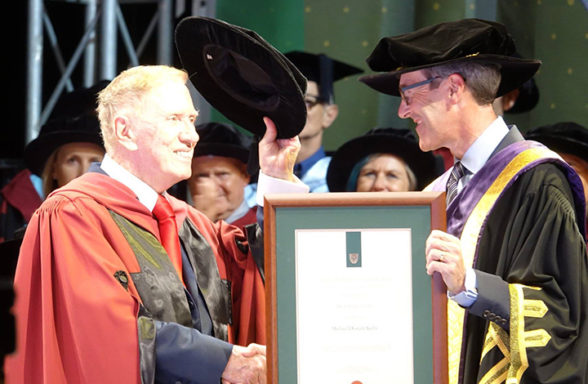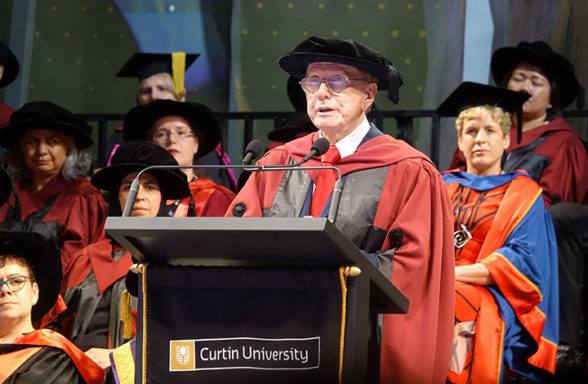2017
December 2017
Dr Yirga Woldeyes presents at the Salzburg Global Seminar 2017 and in Hamburg
Dr Yirga Woldeyes was invited as a sponsored participant to the Salzburg Global Seminar: ‘Springboard for Talent: Language Learning and Integration in a Globalized World’, which was held from 12 to 17 December 2017 in Salzburg, Austria.
Salzburg Global Seminar is an independent non-profit organization founded in 1947. Their multi-year programs aim to bridge divides, transform systems and expand collaborations. They convene outstanding talent across generations, cultures and sectors to inspire new thinking and action, and to connect local innovators with global resources. They foster lasting networks and partnerships for creative, just and sustainable change.
Session 586 attended by Yirga, focused on the pivotal role of language policy and language learning for refugees and migrants, for international relations and for the full utilisation of talent and economic dynamism across populations.
Whilst in Europe, Yirga also took part in discussions on ‘Reflections on Native Colonialism and Decolonising Ethiopian Studies’ with the Centre for Ethiopian Studies in Hamburg, Germany, on the 19th of December 2017.
(First photograph used courtesy: Salzburg Global Seminar:Herman Seidl)
Post date – 20 December 2017
CHRE participates in the ’16 Days in WA’ campaign
The inaugural 16 Days in WA to Stop Violence Against Women campaign took place from 25 November, the International Day for the Elimination of Violence Against Women, to 10 December, Human Rights Day.
Based on the international 16 Days of Activism Against Gender-Based Violence campaign, 16 Days in WA was Western Australia’s contribution to these efforts and aims to raise awareness; motivate positive actions across the state; and advocate on behalf of those agencies and organisations which are currently working hard to oppose violence against women.
The CHRE participated in the campaign by raising awareness on social media and distributing campaign material around Curtin University.
Congratulations to Simone McGurk MLA and her team at the Department of Communities for a successful and wide reaching campaign towards stopping violence against women.
Top of page
November 2017
Dr Lisa Hartley invited to join International Editorial Board
Dr Lisa Hartley, a Senior Lecturer at the Centre, was invited to the International Editorial Board of the new international Human Rights Education Review (HRER). HRER is an open-access, peer-reviewed journal that publishes high quality, original articles in English. The Review aims to make a key contribution to the fast-developing and interdisciplinary field of human rights education.
The HRER provides a forum for research and critical scholarship on human rights and diversity in education. The journal is dedicated to an examination of human rights education theory, philosophy, policy, and praxis. Human Rights Education Review provides opportunities for scholars to contribute to debates and critical thinking in the expanding field of human rights education and addresses these issues as they relate to citizenship, identity and belonging.
The first edition of Human Rights Education Review will be published in June 2018.
Associate Professor Caroline Fleay’s speaking engagements in November
On 15 November 2017, CHRE’s Caroline Fleay and Asher Hirsh from the Refugee Council of Australia, presented ‘Where to from Here? How Can we Build a National Movement?’ at the National Symposium: People Seeking Asylum and Higher Education, University of Melbourne. For more information about the symposium, please see news here.
On the 16th of November 2017, Caroline Fleay gave a keynote presentation, titled ‘Collective Responses and the University: Challenging the exclusion of people seeking asylum from higher education’, at the Forced Migration and Human Rights Conference at the University of Melbourne. In contrast to Australian Government policies that aim to prevent the arrival of people seeking asylum by boat, and the effective exclusion of those who do arrive from being able to resettle, a range of civil society groups and individuals have responded with acts of welcome, including some within universities. People who arrived by boat since 13 August 2012, denied permanent protection even if found to be refugees, are forced to remain in limbo. For those who wish to study, their temporary visa status means that many are effectively excluded from accessing higher education. The presentation explored a university-community research and advocacy collective that seeks to challenge this exclusion of people seeking asylum from pursuing university studies. Underpinned by the lived experiences of people seeking asylum who are part of the collective, the projects aim to develop practical and useful outcomes that enable their access to higher education. The projects also seek to elevate understandings within the university and beyond of the exclusionary impacts of government policies as well as foster the development of more inclusive education communities. The presentation explored some of the outcomes and challenges of this ongoing project, and the role of the academic within such a collective.
On 27 of November 2017, Associate Professor Mary Anne Kenny (Murdoch University) and Caroline Fleay gave a presentation titled, ‘What are the Barriers in Higher Education for Asylum Seekers and Refugees?’ at Murdoch University.
On the 29th of November, Caroline gave a presentation for The Australian Sociological Association Conference, titled ‘Collaborations across Communities’, at the University of Western Australia.
Post date – 17 November
Australian Academy of the Humanities 2017 Symposium
On the 15th to the 17th of November 2017, The Australian Academy of the Humanities (AAH) held their 48th Symposium themed ‘Humanitarianism and Human Rights’, at the Maritime Museum of Western Australia and University of Western Australia (UWA). Curtin University was co-principal sponsor for this event (with UWA), lead by Professor Alan Dench FAHA and Professor Baden Offord as co-convenors with Professor Susan Broomhall and Professor Jane Lydon from UWA. CHRE was strongly represented with Baden and Dr Yirga Woldeyes speaking at the symposium.
Baden chaired the second session on 16th of November, titled ‘Violence and Persecution’. The session explored how discourses of human rights and humanitarianism are implicated in the ways that forms of violence and persecution are constituted, mitigated, ended, or ameliorated. The speakers in the session included Professor Amanda Nettelbeck from the University of Adelaide who spoke about ‘Humanitarianism, violence and colonial legacies’ and Professor John Erni from Hong Kong Baptist University who spoke about ‘Notes on Modern Rights Consciousness in China’. The CHRE’s Dr Yirga Woldeyes concluded the session, speaking about ‘Protecting and Negating Lives: The Janus face of human rights and humanitarian discourse on Africans’ sense of belonging’. His presentation explored the dehumanising effect of the politics of human rights and humanitarianism on the lives of Africans by taking into consideration the various ways these discourses impose new rules that negate the African sense of belonging within and outside the continent.
The Annual Academy Lecture was delivered on the 16th of November by Professor Kim Scott from Curtin University, whose moving presentation titled ‘Not Just Warriors or Victims: Language and land, blood and money’, reflected upon a particular example of language revitalisation, weighed the significance of ‘abiding stories’ being reunited with landscape and community, and considered the exchange of stories of identity and belonging.
Please visit the website for more information about the AAH Symposium and program, and you can listen to Kim Scott’s lecture here.
(Photographs by Gaylene Galardi)
Post date – 24 November 2017
On 15 November 2017, the National Symposium: Seeking Asylum and Higher Education was held at Melbourne University. The symposium brought together 25 people with lived experience of seeking asylum and 40 representatives from Australian universities and community organisations. They met to talk about how to work together to improve the opportunities in higher education for people seeking asylum.
The event was co-convened by Dr Lisa Hartley (Centre for Human Rights, Curtin University) and Dr Sally Baker (School of Social Sciences, UNSW). Asher Hirsch (Refugee Council of Australia) and Karen Dunwoodie (Monash University) provided invaluable support. They were supported by a wider steering group comprising colleagues from the Multicultural Youth Advocacy Network (MYAN), the Asylum Seeker Resource Centre (ASRC), the Centre for Human Rights at Curtin University and Melbourne University.
An inspiring day
The day was designed to listen to and learn from the lived experience of students seeking asylum. As well, participants learnt from each other the experiences of community organisations and universities which had already developed programs and interventions to support students seeking asylum with their education.
It was an inspiring and collaborative day. It began with three students (Fatema Hemmat-Doust, Muhammad Majid, and Arif Hazara) discussing their experiences as people seeking asylum and from refugee backgrounds. Other people who had experience of seeking asylum also shared their experiences throughout the day.
They spoke of many challenges, including their treatment as international students, and the complicated application process. They spoke of the limitations on government-funded English language courses and income supports. However, students often spoke of the importance of key people, such as a trusted broker or friend, in enabling their participation.
Universities and community organisations also shared examples of good practice as well as common challenges. These presentations showed both similarities and differences in institutional responses. They also reminded participants of how many responses had been developed in isolation, and the need for collaborative spaces.
Participants also discussed in small groups four topics:
- What can be done to further encourage and support universities to continue and expand their scholarship programs?
- What can be done to support people who lose their income support?
- How can universities improve their application processes and the support they offer to those wishing to apply?
- What support can be provided to people once they start university?
What now?
At the end of the day, Asher Hirsch and Caroline Fleay (Curtin University) facilitated a robust discussion on the creation of a national movement to support people seeking asylum to access higher education. A working group within the Refugee Education Special Interest Group was created to foster collaboration between universities offering scholarships.
Another suggestion was to develop together tools (such as guidance for admissions personnel) building on the experiences of participants. There was also discussion of establishing a group led by students to speak about the lived experience of studying while seeking asylum.
Learn more
You can read a summary of the main issues discussed at the symposium in this discussion paper. The symposium organisers will also develop an advocacy report as a resource for talking about these issues.
A research project on the symposium’s topic, ‘People seeking asylum: Access and support in higher education‘, is also being led by Dr Lisa Hartley, Dr Sally Baker, Dr Caroline Fleay and Dr Rachel Burke (University of Newcastle). It is funded by the National Centre for Student Equity in Higher Education. The project will explore the complex barriers to higher education that people seeking asylum face in Australia, and evaluate university and community-level support for their participation. A report on the research is due to be published at the end of 2018.
Thanks
Special thanks to:
- participants who donated money to enable students to be present on the day
- Curtin’s Centre for Human Rights for co-sponsoring the event
- the Melbourne Social Equity Institute for hosting the event
- the Sisters of Mercy for their generous donation, and
- the Salvation Army Intercultural Ministry catering group for providing delicious food and drinks.
(Text: Refugee Council of Australia website. Photographs: Colleen Martin)
Post date – 10 November 2017
An open letter from the Centre for Human Rights Education to Members of the Parliament of Australia
Dear Members of the Parliament of Australia
We write to you out of deep concern for the lives of the men who remain on Manus Island after four years, many of who have been recognised as refugees and, therefore, cannot return to their home countries.
You may have seen the reports this week that they remain terribly frightened to leave the detention centre and live in an alternative site that is not yet finished, despite what the government says. The Australian newspaper is now reporting that this new site is not finished, let alone be a secure site for the men. The level of their fear is reflected in the fact that most remain in a site where there is no power, water and food being provided. And right now PNG immigration officials and police are dismantling the centre.
What is also deeply concerning is the terrible mental toll that being forced to remain on Manus Island for more than four years has had. The men cannot be left indefinitely on an island where there is little prospect of being able to settle and get on with their lives. This site of imprisonment is also where six men have died, including Reza Barati who was murdered by people contracted to work at the site, and Faysal Ishak Ahmed and Hamid Kehazaei who both died due to woefully inadequate health services. There have been credible reports of others being subject to violent attacks, and increasing numbers of men are now very unwell and require urgent medical attention.
Nothing can justify keeping these men on Manus Island in these conditions. We implore you to recognise the terrible toll that more than four years on Manus Island has taken. We also urge you to read Professor Louise Newman’s article on this for more information – as an expert in mental health and as someone in touch with some of the men on the island, she considers the situation to be dire: http://theconversation.com/the-ethics-of-medical-practice-in-offshore-detention-facilities-86684
Please raise your voice within your parties and ensure that a solution to their suffering is found. Australia is responsible for putting the men on Manus Island, and responsible for keeping them there and for what they have endured. They need to be brought to Australia now.
Yours sincerely
Centre for Human Rights Education
Curtin University
Post date – 20 December 2017
AAPI Seminar Series 2017, The Pedagogies of Human Rights
On the 6th of November, the Centre’s Professor Baden Offered, Associate Professor Caroline Fleay, Dr Lisa Hartley and Dr Yirga Woldeyes all spoke at a research seminar that was organised by the Australia-Asia-Pacific Institute (AAPI), titled ‘The Pedagogies of Human Rights.’
Dr Thor Kerr, an AAPI member, chaired the seminar. Baden introduced the seminar with a background to the research that was being presented. Caroline, Lisa, Yirga and Baden all then presented their research that will be included as chapters in a book titled, “The Pedagogies of Human Rights.”
Caroline’s presentation, titled ‘Engaging in human rights activism as a form of education’, explored an academic-activist collective that focuses on enabling access to higher education for people seeking asylum and how its projects can be understood as pedagogical encounters. Lisa’s presentation was titled, ‘The Neoliberal University: On the (Im)Possibility of Creating Critical Pedagogic Spaces Online’ and Yirga’s was ‘Epistemic diversity and critical human rights education: Teaching beyond the doctrine.’ Baden finished the seminar with his presentation titled ‘‘Not blinking’ – A Pedagogy of Human Rights’, which highlighted the work of a critical human rights educator being that of principled exposure, activating knowledge, calling to account, bearing witness and blurring the boundaries.
A number of the Centre’s past and current students attended the seminar, along with a number of Curtin staff and academics.
To see more photos from the seminar, please see the Photo galleries page.
(Photographs by Gaylene Galardi)
Top of page
October 2017
Post date – 3 November 2017
Seeking Refuge WA, finalist for United Nations Association’s Human Rights Award 2017
Libby Williams and the Centre’s Dr Caroline Fleay were finalists in the United Nations Association’s Human Rights Award on 27 October 2017 for their coordination of the Seeking Refuge WA campaign. This crowdfunding campaign raised more than $90,000 earlier this year to ensure The Humanitarian Group was able to provide legal assistance to people seeking asylum in WA who were denied access to funded legal support in preparing their refugee claim. This is great recognition of the work that Libby and Caroline put in to organising the campaign.
Post date – 30 October 2017
Recognition for Dr Fleay for her advocacy for refugees and asylum seekers
On Wednesday 25 October, the Centre’s Dr Caroline Fleay was made a life member of the Centre for Asylum Seekers, Refugees and Detainees (CARAD) Inc at their annual general meeting (AGM) at Perth City Farm. CARAD provides specialised welfare and advocacy assistance to asylum seekers, refugees and detainees in Western Australia, through their Case Management and Volunteer Programs. All volunteers, members, and supporters are invited to be a part of the AGM.
This life membership of CARAD is great acknowledgment of the fantastic work Caroline does to better the lives of refugees and asylum seekers in Perth and beyond. Our warmest congratulations to Caroline for this well deserved recognition.
(Photo by Mary Anne Kenny)
Post date – 6 November 2017
Ancestors’ Words project workshop, first of its kind
On the 24th and 25th of October 2017, the Centre’s Dr Elfie Shiosaki along with Curtin Distinguished Professor Anna Haebich and Noongar elder Darryl Kickett, conducted an Archival Research workshop at the State Records Office of Western Australia (SROWA). The Ancestors’ Words project reunites letters written by Noongar people preserved in archives in Western Australia with the descendants of the letter writers. Twenty family members who had received letters in this project contributed to the two-day workshop about Indigenous knowledges and archives. This workshop was the first of its kind at SROWA.
Post date – 18 October 2017
Centre Director speaks to educators about suicide prevention in Ballina
Professor Baden Offord, Director of the Centre for Human Rights Education, was invited to the east coast on 17 October to speak about ‘How we think about suicide as educators from the perspective of an educator with lived experience’ to the Southern Cross Distance Education teachers in Ballina. This was an extended 1.5 hour version of a talk he gave at the Suicide Prevention Australia national conference in 2015. Baden’s approach is to think about questions of how we can create activated safe space, where dignity and social justice are the oxygen of everyday (and banal) relationships and encounters. In other words, how to create and ensure the learning environment is activated with respect, deep listening and compassion well before any ‘trigger effect’ can happen, when someone who is experiencing a ‘crisis of self’ is unfortunately pathologised by the systems that are put in place to protect. His approach to preventing suicide is through a social justice and human rights lens to understand what has been described as a ‘crisis of self.’
Professor Offord referred to this quote and unpacked it in his talk: “We have come to think about suicide almost solely in terms of individual mental illness and risk, and as a consequence “an individualised, ‘internalised,’ pathologised, depoliticized,” tragic event. But if suicide is a problem, it is as much a social, ethical, and political issue as a mental health one, and we need to be able to draw upon a wide range of discursive resources in order to adequately frame and respond to its possibility or actuality.” Ian Marsh (2016).
(Pictures by Christopher Macfarlane)
Top of page
September 2017
Post date – 6 November 2017
Verne Harris public lecture
The Centre for Human Rights Education and the Department of Information Studies welcomed award-winning South African international human rights advocate, scholar, and archivist, Verne Harris, to Curtin on 22 September 2017. Verne is the Director of Memory and Dialogue at the Nelson Mandela Foundation. He was Nelson Mandela’s archivist from 2004 to 2013. Dr Elfie Shiosaki from CHRE and Dr Leisa Gibbons from the Department of Information Studies both facilitated the event. Verne gave a compelling public lecture ‘Beyond Archive, Beyond Hope, Beyond Democracy?’ in the Tim Winton Lecture Theatre at Curtin University. This lecture explored the role of archive and memory work in struggles for social justice, and engaged the audience with these questions:
– What does Nelson Mandela’s legacy mean in South Africa today?
– Is democracy an oppressive apparatus?
– Does whiteness still exercise hegemony globally?
– Is there hope for the human project?
(Photos by Christopher Macfarlane)
Post date – 18 October 2017
Dr Fleay presents papers at European conferences
Dr Caroline Fleay recently returned from presenting at the 11th European International Studies Association Conference in Barcelona, and participating in a UK conference that explored the experiences of people seeking asylum accessing university, in September 2017. The three day Article 26 conference at the University of Warwick was a wonderful opportunity to learn about the challenges and opportunities that people seeking asylum experience in the UK, and to be part of discussions about a range of university and community responses to further enable access to higher education. Caroline presented an overview of the project that CHRE has developed with people seeking asylum that aims to enable greater access to higher education. Findings from the Article 26 conference will help inform the development of national efforts in Australia to further enable access to higher education for people seeking asylum. Further information about the conference can be found here.
(Photograph by Rebecca Murray)
Post date – 22 September 2017
CHRE Supports Australian Marriage Equality
Curtin University’s Centre for Human Rights Education is a centre for research, postgraduate teaching, critical scholarship and advocacy on human rights. The Centre leads ethical scholarship, enabling individual agency and community engagement on human rights and social justice through the study and promotion of human rights at local, national and international levels.
Intrinsic to its work, the Centre for Human Rights Education actively supports equality before the law, and equality in terms of social recognition, a core human rights value.
We therefore decisively and proudly support marriage equality in Australia as we affirm that marriage equality is a human right.
As such, we are committed to supporting and empowering the LGBTQI+ staff and students at Curtin University and in the wider community.
Professor Baden Offord, Dr Caroline Fleay, Dr Lisa Hartley, Dr Elfie Shiosaki, Dr Yirga Woldeyes, Dr Greg Watson, Denise Brown, Misty Farquhar, Gaylene Galardi.
Post date – 6 November 2017
Archives and Indigenous human rights workshop: decolonising archives in Western Australia
On the 21st of September, the Centre’s Dr Elfie Shiosaki with Dr Leisa Gibbons conducted a workshop titled ‘Archives and Indigenous human rights workshop: decolonising archives in Western Australia’ at Curtin University.
Archives in Western Australia have been used to colonise knowledge about Noongar people and families. In the 21st century Noongar people continue to advocate for the realisation of Indigenous human rights in archival practices, to transform these colonial archives into sites of revitalised cultural heritage for the Noongar nation. This workshop engaged Elders, community members, scholars and practitioners in the praxis of decolonising the power and knowledge within these archives. We welcomed Verne Harris, Director of Memory and Dialogue at the Nelson Mandela Foundation, to join us in our discussions.
This workshop aimed to:
– Share knowledge and understanding about Indigenous epistemologies of colonial archives;
– Recognise how Indigenous peoples have been engaging with these archives to decolonise knowledge within them; and
– Identify opportunities for collective advocacy for Indigenous rights in archival practices.
Post date – 3 November 2017
Centre participates in the Curtin Research and Innovation Week 2017
On the 20th of September, the Centre’s Dr Lisa Hartley and Dr Elfie Shiosaki participated in a seminar that was organised by the Australia-Asia-Pacific Institute (AAPI) as part of Curtin Universities Research and Innovation Week 2017.
The seminar was titled ‘What does it mean to engage well?’ and featured AAPI researchers exploring questions of engagement in collaboration with their community partners and colleagues from elsewhere in the university. Dr Lisa Hartley chaired the seminar and Dr Elfie Shiosaki co-presented with John Curtin Distinguished Professor Anna Haebich and Noongar elder Darryl Kickett on their ARC project ‘Ancestors Words: Nyungar Letter Writing in the Archive’. The presentation was titled “‘No one size fits all’: Community engagement research with Nyungar people.”
Additional presentations included “Decolonisation and Aboriginal-wedjela engagement in a university, presented by Dr Tod Jones from the School of Built Environment and Carol Dowling from the Centre for Aboriginal Studies, and “Healing Centres Stolen Generation Survivors’ Project”, presented by Professor Reena Tiwari and Adjunct Professor John Stephens, both from the School of Built Environment at Curtin.
Mr Jim Morrison, Executive Director, Bringing them Home, WA, Humanities Research Dean Professor Tim Dolin and DVC Research Professor Chris Moran acted as seminar respondents, with Professor Moran pointing to the critical need to refine official measures of engagement and impact to account for the powerful affective benefits for communities from such engaged participatory research. The seminar attracted an extended audience, including representatives from the Department of Communities and Health, and a number of WA design and archaeological professionals.
(Text by Gaylene Galardi and AAPI Research Review. Photograph by Gaylene Galardi. See Photo galleries for more photos.)
Post date – 1 November 2017
Public Screening and Q&A with Film maker: The Borneo Case
The Borneo Case is a documentary produced by Erik Pauser and Dylan Williams over the course of 5 years to relate the tale of how “profits from the illegal logging that has annihilated more than 90% of the Malaysian Borneo Rainforest, have been money laundered into property portfolios all around the world”. Between 30 to 40 people attended the public screening of the documentary in Perth, Western Australia, on the afternoon of 16 September 2017.
Supported by the Curtin Centre of Human Rights Education, Perth was able, together with 25 other venues across the world ranging from Berlin and Dublin to Busan, to screen the documentary. There was also an interesting Q and A session held with Malaysian environmental activist and scholar, Jade Lee, answering some of the many questions raised about the threat illegal logging and the construction of mega hydro-dams pose to the environment and customs of the indigenous peoples of Sarawak, Borneo. Some much needed funds and attention was directed on the dire situation.
(Text and photo by Susan Leong)
Post date – 15 September 2017
CHRE staff sign ‘Failure to Acknowledge Ugly Truths of Colonisation’ Letter
A Letter to the Editor was published on the 13th of September in the West Australian, entitled ‘Failure to Acknowledge Ugly Truths of Colonisation’, page 26. The letter was signed by 25 Curtin University academics and professional staff including Hannah McGlade, Marion Kickett, Simon Forrest, Kim Scott, Suvendrini Perera, Anna Haebich, David Whish-Wilson, Thor Kerr, John Kinsella, Carol Dowling, Caroline Fleay, Lisa Hartley and Baden Offord.
The full text, as written by Hannah McGlade and Suvendrini Perera, is as follows:
The recent Opinion piece by Andrew Bolt ‘Time for truth about history’ is a highly offensive piece of writing that seeks to deny the racially discriminatory history of Aboriginal dispossession and child removal. It is a vicious attack on Aboriginal people and an affront to the national commitment to Reconciliation and human rights.
The article was published by The West Australian on 31 August 2017 and was also published online by The Herald Sun prior to West publication. The Opinion of Andrew Bolt fails to acknowledge that Australia was colonised by the British without a Treaty with the Aboriginal people. This was not in accordance with the practice of international law as reflected in the Treaty arrangements entered into in New Zealand, Canada and the United States. Aboriginal people in Australia were simply dispossessed without any equitable arrangement and this wrongful usurpation of Aboriginal sovereignty and rights to land has had devastating consequences to this day. The High Court in the case of Mabo v The State of Queensland (1992) denounced the colonial acquisition perpetrated on the basis of a racist doctrine known as Terra Nullius as ‘the darkest aspect of the history of this nation’.
The national Human Rights and Equal Opportunity Commission (HREOC) in its ‘Bringing Them Home’ Inquiry (1997) examined Aboriginal child removal and concluded that the practice was racially discriminatory and genocidal in intent.
The publication does not acknowledge the HREOC Inquiry or the finding that the forcible removal of children from one cultural group to another amounted to genocide as defined and prohibited by international law. There was considerable evidence provided to the Inquiry by Aboriginal people who had been wrongfully removed from their families as to the profoundly traumatic and damaging consequences this had upon their lives. This evidence was subsequently confirmed by research in ‘The West Australian Child Health Survey’ conducted by the Telethon Institute for Child Health Research and involving a survey of 5,289 West Australian Indigenous children.
According to this research, of the children whose main carer had been forcibly separated from their family as part of the past discriminatory policies, 32.7 per cent, (nearly 1/3) were at high risk of clinically significant emotional or behavioural difficulties. By comparison, Aboriginal children looked after by carers who had not been forcibly separated from their natural family were 21.8 per cent at risk and non-Aboriginal Western Australian children aged 4–17 years were found to be 15 per cent at high risk of clinically significant emotional or behavioural difficulties.
Andrew Bolt, The West Australian and Herald Sun newspapers have not provided a fair or balanced report on these issues. Key facts and evidence such as the HREOC Inquiry and the findings of the Inquiry concerning racial discrimination and genocide have been omitted and denied. Evidence concerning the impact of past practices of Aboriginal child removal is ignored because it does not support the shocking suggestion that Aboriginal children forcibly removed were ‘saved’ by government. Aboriginal children were not ‘saved’ in missions where they were subject to physical, emotional, psychological and sexual abuse. This Opinion flies in the face of the national apology offered in 2008 by the former Prime Minister Kevin Rudd who acknowledged that those past laws and practices ‘inflicted profound grief, suffering and loss’ on Indigenous Australians.
The Andrew Bolt publication and the claims made in the article are derogatory to Aboriginal people, a distortion of history and arguably a form of racial propaganda in contravention of the commitments Australia has made in the International Convention on the Elimination of All Forms of Racial Discrimination (ICERD). We are concerned that this publication also undermines and places at risk the national process of reconciliation and Australia’s commitment to human rights.
Post date – 1 November 2017
‘Ancestors’ Words: Noongar writing in WA government archives (1860-1960)’
The third in the 2017 series of the Centre’s research seminars was held on the 7th of September in the Centre for Aboriginal Studies boardroom. This seminar was very well-attended and included Nyungar community members and Curtin staff and students.
The seminar, given by John Curtin Distinguished Professor Anna Haebich, Darryl Kickett and Dr Elfie Shiosaki, summarised their research project, Ancestors’ Words: Noongar writing in WA government archives (1860-1960)’. The archives in Western Australia contain hundreds of letters written by Noongar people between 1860 and 1960. Captured in the letters are many silenced stories of courage and activism. This research project will reunite letters with descendants of the letter writers. With these hidden stories restored to the families, the letters will come alive and once again be part of the Noongar living culture and history.
A number of audience members expressed interest and excitement in how the research is seeking to decolonise the archives by returning letters to rightful owners in the Noongar community. It was an excellent example of the powerful community-engaged research that is being undertaken by CHRE staff with others in the Faculty of Humanities.
(Photo by Lisa Hartley)
Post date – 13 September 2017
New graduates awarded
Congratulations to a number of our students who have finished their studies with the Centre in Semester 1, 2017. On Sunday 3 September 2017, five Masters and Graduate Certificate students attended the graduation ceremony that was held at the Perth Convention Centre. Congratulations go to Eleanor Cowell, Sara Denby, Georgina Diacos and Kate McGilvray.
Pictured is our latest PhD graduate, Dr Gerard Gill, with a member of his supervision team, Dr Lisa Hartley from CHRE. Gerard’s thesis is titled ‘Social Movements and ICTs: Addressing Complexity and Contingency‘.
We wish all of our graduates the very best in their future pursuits.
Top of page
August 2017
Post date – 30 August 2017
NCSEHE Research Grant Success – ‘People Seeking Asylum: Access and Support in Higher Education’
CHRE academics Dr Lisa Hartley and Dr Caroline Fleay, with Dr Sally Baker and Dr Rachel Burke from the University of Newcastle have been awarded a grant from the National Centre for Student Equity in Higher Education’s (NCSEHE) 2017 Competitive Research Program for their research project ‘People seeking asylum: Access and support in higher education’.
The research project will explore the complex barriers to higher education facing People Seeking Asylum (PSA) in Australia, and evaluate university and community level support. Analysing primary and secondary quantitative and qualitative sources at macro-national, meso-institutional, and micro-practice/lived experience levels, the study will address a research gap by producing a national map of access barriers specific to PSA and university and community efforts. Through surveys and interviews with university and community sector stakeholders, and interviews with PSA, this study will examine the impact of PSA-specific scholarships and other enabling initiatives, identify best practice, and produce greater awareness of PSA engagement and barriers to higher education.
This research project aligns with the first ‘National Symposium: People Seeking Asylum in Higher Education’ being organised by the research team, in collaboration with the Refugee Council of Australia, The University of Melbourne, community sector organisations, and people living the experience. This one day symposium is being held at the University of Melbourne on 15 November 2017 and will bring together people seeking asylum, university and community sector stakeholders will focus on identifying emerging challenges and future opportunities.
For more information about the Symposium, please see the Event website.
Post date – 13 September 2017
Dr Woldeyes awarded at the 2017 Humanities Research Celebration
On Tuesday 29 August 2017, the Faculty of Humanities announced its annual research awards, for work published, shown or performed in 2016. Submissions for the Awards were competitive and showed the broad range of the Faculty’s research. Congratulations to Dr Yirga Gelaw Woldeyes who received an award for his creative non-fiction writing in The Westerly in 2016 with Dr Rebecca Higgie, “Born Free, Created Poor: Coming of Age in Ethiopia”. Congratulations to Yirga and Rebecca for receiving the Minor Creative work of the Year Award for an Early Career Researcher.
(Photo courtesy of Sue Summers)
Post date – 4 September 2017
Young Hopes: Digital Stories by Young Refugees in Morocco and Turkey
On the 21st of August 2017, the Centre for Culture and Technology (CCAT) and the Centre for Human Rights Education (CHRE) co-hosted a digital story screening and open space discussion event with CCAT’s Visiting Researcher Dr Burcu Şimşek.
Burcu is the founder and coordinator of the Digital Storytelling Unit at Hacettepe University in Ankara, Turkey and has facilitated over 50 digital storytelling workshops in Turkey and abroad since 2009 in cooperation with international institutions and non-governmental organisations. She is an Associate Professor in the Department of Communication Sciences at Hacettepe University and serves as the Vice-Dean for the Faculty, and also has been appointed an Adjunct Researcher for CCAT at Curtin University.
Burcu’s involvement with storytelling began with a career in journalism and has since evolved to include digital storytelling, women’s studies, oral history, migration studies and health communication with her master’s degree on Women’s Studies from Ankara University and her PhD degree from Creative Industries Faculty, Queensland University of Technology. Dr Şimşek was the convenor of “The 5th International Digital Storytelling Conference: Create, Act, Change” at Hacettepe University in 2013.
After an introduction by Professor John Hartley from CCAT and Dr Lisa Hartley from CHRE, the digital stories from young refugees living in Morocco and Turkey were then screened. A space was then created for participants to share experiences, thoughts and a discussion of new types of collaboration across borders. Attendees included community organisations and activists working with people from refugee backgrounds in Western Australia.
For more information about the event, please see the event website. More photographs from the event can be viewed on our Photo galleries page.
(Photographs by Gaylene Galardi)
Post date – 4 September 2017
Annual Curtin University Human Rights Lecture presented Dr Waleed Aly
On the 19th of August 2017, prominent Australian writer, academic and broadcaster, Dr Waleed Aly presented the Annual Curtin University Human Rights Lecture to over 1300 people in the Curtin Stadium at Curtin University.
The Curtin Annual Human Rights Lecture, established in 2016, is a key initiative of the CHRE. The inaugural lecture was delivered by Professor Gillian Triggs, President of the Australian Human Rights Commission.
Professor Baden Offord, Director of the CHRE and Dr Haruhisa Handa Chair of Human Rights Education, was the Master of Ceremonies for the event, first introducing Marie Taylor who gave a Welcome to Country to open the event. Professor Deborah Terry, Vice Chancellor of Curtin University then officially welcomed guests and introduced the keynote speaker, Dr Waleed Aly.
Dr Aly spoke about ‘Human Rights, Populism and the Crisis of Meaning’. He examined that it is often observed that human rights are being frequently assailed in contemporary politics and that what is less often examined is why it is that human rights have lost their political purchase.
Dr Aly’s presentation looked at how the grand narratives of politics have evolved to sideline human rights ideals, and why assertive forms of nationalism are so well placed to occupy the resultant vacuum. He argued that for human rights to regain their persuasive power, they need to rediscover a way to become enchanted: imbued with some politically compelling meaning.
After a short question and answer session, Baden concluded the event with thanks to the speaker and presentation of a gift by Professor Terry.
The Centre would like to thank Dr Aly for his time in delivering the 2017 Human Rights Lecture at Curtin.
The lecture was recorded and you can find it on our Video page. You can also watch the video on Youtube. More photographs from the event can be viewed on our Photo galleries page.
(Photographs by Gaylene Galardi)
Top of page
July 2017
Post date – 31 July 2017
CHRE representation at the 2017 Social Impact Festival at the University of Western Australia
On Wednesday 26 July, Dr Caroline Fleay, Professor Baden Offord, Dr Lisa Hartley, Abbas Nabhani & Ghulam Raza Mumtaz presented a panel at the Social Impact Festival, University of Western Australia. The presentations explored a collaborative project coordinated by CHRE that includes people seeking asylum, community members, and the Centre’s researchers and students. The project is an initiative underpinned by an understanding of the university as a place of refuge that provides opportunities for mutual learning between members of the university and the broader community, including people seeking asylum.
(Photographs by Christopher Macfarlane)
Post date – 31 July 2017
Pedagogies of Human Rights’ Workshop
CHRE staff attended a one day ‘Pedagogies of Human Rights’ Workshop at Western Sydney University on 24 July. Hosted by the Whitlam Institute, 17 human rights scholars and advocates from a range of disciplinary backgrounds, met to discuss and present on aspects of how human rights are taught and learnt in both institutional and non-institutional settings. Attendees included Margaret Whitlam Chair of Social Work, Professor Linda Briskman (co-convenor), Professor Jim Ife (founder of the CHRE), Associate Professor Mary Anne Kenny, Dr Sukhmani Khorana, Associate Professor Karen Soldatic, Dr Lucy Fiske, Dr Caroline Fleay, Dr Lisa Hartley, Dr Yirga Woldeyes, Carol Dowling (Centre for Aboriginal Studies, Curtin University), Professor Baden Offord (convenor), Dr Sonia Tascon, Dr Dinesh Wadiwel, Dr Leticia Anderson and Dr Greg Watson.
(Photograph by Christopher Macfarlane)
Post date – 31 October 2017
From ‘Boy Overboard’ (2002) to ‘The Bone Sparrow’ (2016): Refugee and Asylum Seeker Activism in Australian Fiction for Young People
The second in the Centre’s research seminar series, given on the 13th of July 2017, included a deep exploration and examination of the ways in which various examples of young fiction seek to respond to the Australian government’s treatment of people seeking asylum. The seminar was given by Dr Debra Dudek (CHRE visiting researcher), Senior Lecturer in the School of English Literatures, University of Wollongong, Australia, and Director of the Centre for Canadian-Australian Studies. The seminar was attended by members of the community, Curtin staff and students, and the seminar led to a rich exploration of how friendship and emotion can be harnessed to raise awareness for young people about this politicised, and often dehumanised, topic.
Top of page
June 2017
Post date – 19 June 2017
CHRE’s Submission on Proposals to ‘Strengthening the Test for Australian Citizenship’
The Centre for Human Rights Education (CHRE) prepared a submission for the recent community consultation on the proposed changes to citizenship set out in the paper Strengthening the Test for Australian Citizenship. On 12 June 2017, however, the Government controversially announced it would not be releasing submissions publicly, and two days later, introduced the Australian Citizenship Legislation Amendment (Strengthening the Requirements for Australian Citizenship and Other Measures) Bill 2017. CHRE holds very serious concerns about the impact of these changes on migrants who want to become part of the Australian community, particularly people from refugee backgrounds. Please read CHRE’s submission here which outlines these potential impacts.
Top of page
May 2017
Post date – 31 October 2017
Examining ethical and epistemological issues in human rights-oriented collaborative and community-based research
This first seminar for the CHRE research seminar series on the 4th of May 2017, focused on one of the central research methodologies advocated by Centre for Human Rights Education: collaborative, community-based, human rights-oriented research. Dr Lisa Hartley, Senior lecturer, Centre for Human Rights Education delivered the seminar which was very well-attended with audience members including from Curtin staff, interested community individuals and members of community-based organisations such as ASeTTS and the Aboriginal Legal Service WA. There was robust discussion about how the complex ethical and epistemological questions this type of research raises for community-university collaborations specifically and for social science and the humanities research more broadly.
Top of page
March 2017
Post date – 3 May 2017
Dr Shiosaki visits the National Archives in London
Dr Elfie Shiosaki, Indigenous Post-Doctoral Research Fellow at CHRE, visited the National Archives in London in March to continue her research about discursive activism by Noongar people in Western Australia for Indigenous human rights. This visit was supported by the ARC Centre for Excellence for the History of Emotions, where Dr Shiosaki is an Indigenous Associate Investigator. Her research at the National Archives examined archival traces of petitions of rights written by Noongar people to political institutions in the United Kingdom in the 1920s and 1930s.
(Photo by Elfie Shiosaki)
Post date – 7 April 2017
Dr Caroline Fleay delivers 2017 Grace Vaughan Annual Lecture
On 15 March 2017, the Centre’s Dr Caroline Fleay delivered the 2017 Grace Vaughan Annual Lecture at the University of Western Australia (UWA), speaking about ‘Families Still Seeking Asylum: Political Impacts and Community Responses in Australia’.
Caroline’s presentation outlined the adverse impact that Australian political leaders and their policies have on people seeking asylum and their families. It also explored a range of community responses that challenge these policies, highlighting acts of solidarity, activism and community building that defy and challenge political attempts to dehumanise, punish and divide.
The Grace Vaughan Memorial Lecture commemorates the life and achievements of Grace Vaughan, a social worker, social activist and parliamentarian, who was dedicated to the improvement of life at all levels and had a deep commitment to Australia’s participation in the Asian region and to ensuring women’s full participation in society.
For more information about the lecture, please see the UWA webpage where you can also find the recorded lecture. You will need Adobe Flash Player 9.0 or above to view the content.
(Photograph by Sharon Cueva, Institute of Advanced Studies, UWA).
Top of page
February 2017
Post date – 14 April 2017
Refugee Alternatives Conference: Improving Policy, Practice and Public Support
Dr Caroline Fleay was a member of the steering committee for the Refugee Alternatives Conference that took place at the University of NSW in Sydney on the 22nd and 23rd of February 2017. Caroline also co-moderated a panel session titled ‘How Do We Create Change? Exploring Different Approaches’. The panel explored a range of approaches that seek to bring about social and political change and generated robust discussion about the multitude of ways people currently advocate and agitate for change in asylum seeker policy.
More details about the conference can be found at their website.
Post date – 12 April 2017
Seeking Refuge in Australia: Contested Policies and Community Responses – Seeking Refuge WA Launch
On the 17th of February 2017, The Centre for Human Rights Education (CHRE) hosted an event at Curtin University titled ‘Seeking Refuge in Australia: Contested Policies and Community Responses’. The public event, attended by more than 450 people, included a lecture given by The Honourable Michael Kirby AC CMG and the launch of the Seeking Refuge WA crowdfunding campaign.
After an introduction by Professor Baden Offord, Director of the CHRE, the program began with a Welcome to Country given by Associate Professor Simon Forrest, Elder in Residence at Curtin University, followed by the Wesley College Moorditj Mob Dancers and didgeridoo players.
Centre Patron, the Hon. Michael Kirby, delivered a lecture on the topic of ‘Seeking Refuge in Australia’, exploring the policy of detaining people seeking asylum who arrive to Australia by boat, and investigating when immigration detention becomes unlawful punishment. You can watch or listen to the full lecture via the iLecture recording.
Dr Caroline Fleay and guests then launched Seeking Refuge WA, a crowdfunding campaign that supports The Humanitarian Group’s free legal clinic for people seeking asylum in WA.
Over the past few years, more than a thousand people in Perth who came to Australia by boat to seek asylum have been denied access to funded legal assistance. This has left most without the vital legal assistance they need to help prepare their refugee claim. Legal assistance can mean the difference between living in safety or being returned to a life of persecution.
The Centre for Human Rights Education is part of a community collective who organised Seeking Refuge WA to ensure that as many people seeking asylum in WA as possible get access to The Humanitarian Group’s free legal clinic.
The crowdfunding campaign has since raised more than $90,000 which will mean 110 people on The Humanitarian Group’s waiting list will be provided with assistance this year to prepare their refugee claim.
If you would like to watch the video of the event, you can stream the iLecture online.
(Photographs by Gaylene Galardi)
Post date – 3 April 2017
Student graduation with the Honourable Michael Kirby, February 2017
On the evening of the 16th of February 2017, the Centre for Human Rights Education (CHRE) celebrated the graduation of eight students who had completed either their Graduate Certificate or Master of Human Rights in 2016. Congratulations to Chloe Bartram, Logan Bousbury, Karina Chicote, Sandra Dutson, Alice Gibson, Bernadette O’Connor, Prattana Tublom and Johanna Webster. Centre staff had an informal celebration with students prior to the graduation ceremony on the Bentley campus.
The Honourable Michael Kirby, Patron of the CHRE, was also there to celebrate with students, and received an Honorary Doctor of Letters from Curtin University. He gave a great speech on the night, and we include here, a couple of excerpts:
“Nothing should be beyond the aspiration and attainments of a minority or group in this country. Human rights defend minorities, including members of the LGBTI minority like me. I am proud to be Patron of the Curtin Centre for Human Rights Education. It is dedicated to this enduring goal.”
“So this is the challenge for today’s graduates, including myself, on this special night at Curtin University. To remember and reflect to preserve the values of people like John Curtin. To take advantage of the extraordinary technology of the age we live in. To be engaged, beyond momentary pop ups, with deep questions, great music, fine literature and love of one another. And to lift our eyes from the screen to the beauty of the world and to the living reality of the people who bring us to magical moments like this graduation.
Many of those people are our witness. They are real and they are human. They are actual, not virtual images in a recorded drama. They are flesh and blood that is mortal. They will not last forever. On an occasion like this, just for a moment, we should set aside the selfies. We should look these special people in the eyes. We should note their lovely features, their blemishes, their wrinkles and even grey hair. We should grasp and hug them and say those old fashioned very human words. “Thank you. Couldn’t have done it without you. You are precious. I love you. I will never forget that I did not do this by myself, selfishly. I did it with you and others”.
To my fellow graduates, to our partners and families and loved ones and to each other, I say: seize the moment. Savour the reality. Put those mobile phones away for a while. Let them vibrate as they please. Imbibe the precious ambience of the here and now. And congratulations to all who join us on our special day!”
(Photographs by Gaylene Galardi and Christopher Macfarlane)
Top of page

